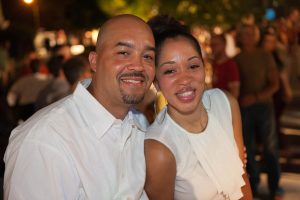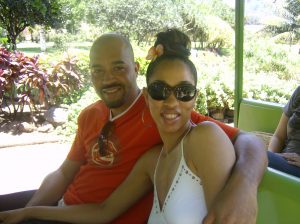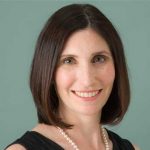FERTILITY ROAD ARTICLE
Fertility Journeys: Introducing Heather and Brandon
The team at Oregon Reproductive Medicine has selected a couple to be part of our unique Fertility Journeys project. We are delighted to introduce Heather and Brandon, who after a nine-year journey with many setbacks and repeated unsuccessful attempts are embarking on their donor egg IVF treatment with genomic screening at ORM.
Heather writes…
Not all journeys are easy. We will admit that our road has been challenging. For many, having a child is trouble-free. In our case, having a child has been one of our most difficult challenges and a long journey with many disappointments – 2 previous fertility specialists, 7 IUI procedures, 2 IVF procedures, 4 surgeries and countless medical bills.
These types of struggles can either make or break you. We’re thankful that this journey has made us stronger and determined not to give up.
Our journey began nine years ago. Brandon and I met and fell in love. We married in 2008 when I was 31. We saved-up and after a few years bought our home, filled with the hope of starting and raising our family there. We tried ourselves for some 3 ½ years to get pregnant but nothing worked.
By the time I was 35 we decided it was time to seek medical help. My first fertility specialist recommended that we try IUI. We tried at least 3 IUI procedures. None of these worked. We decided to change fertility specialists right before I turned 37.
During this transition time, I experienced an umbilical hernia. In connection with treating this, my second fertility specialist diagnosed me with Stage 4 (severe) endometriosis. My first fertility specialist had not diagnosed my condition correctly, despite my describing the painful menstrual cramps that I experienced and the significant difficulty my husband and I were having trying to conceive a child.
I underwent two surgeries, a laparoscopic surgery to unclog one of my fallopian tubes and a hysteroscopy to remove some of my endometriosis. Following this, we tried a further 4 IUI procedures. None of these were successful and by now I was 38 years old.
As this stage, our second fertility specialist told us that we needed to strongly consider IVF to build our family. To be quite frank, this process, at the time, was simply embarrassing. I was overwhelmed with how something that was so simple for my family and friends had become the most complicated journey of my life.
Many friends and family told us to have hope and to keep trying. While these suggestions came from a place of love, they left me feeling like a failure, like a woman who wasn’t in control of her own body.
In the midst of our struggle to conceive, both of my parents were fighting with separate bouts of cancer – thankfully they are both now in remission. When you see people that you love fighting for their lives, you either live in fear or step out on faith. As a result, we decided that we would make it our mission to have an IVF procedure no matter the cost or the time it would take to get there.
I spent a year researching grants and funding support for IVF treatment. It was hard to share the intimate details of our journey in numerous grant applications and I was grateful that Brandon was up being on this journey with me. Unfortunately, my endometriosis meant that many programs would not help us.
I also worked to successfully convince my employer, a large university, to provide fertility care as part of our health insurance coverage. The work convincing my employer also got me involved with others who were seeking to get similar fertility coverage through their employers’ health care plans. Together we’ve shared our data with RESOLVE (The US National Fertility Association) for RESOLVE’s Coverage at Work Program so that others can benefit from our efforts and ask their employers to cover fertility care.
At last, after many, many grant applications, we received some help and by working odd jobs and saving we had enough financial resources to try IVF. By July 2016 we were ready. I was 39.
We underwent an IVF procedure with ICSI fertilisation and we transferred 2, day-3 embryos. Neither developed into a pregnancy. My specialist reassured me that she thought a second try would be beneficial so we shouldn’t lose hope.
 We were lucky to receive some additional financial assistance and in December 2016 we had a second IVF procedure, this time with standard fertilisation. I was 40. This cycle just felt good. I had my egg retrieval the day before my mother’s birthday and the transfer the day after my father’s birthday. My fertility specialist was able to do the transfer with my favorite nurse and my pregnancy results were scheduled for Brandon’s birthday, two weeks later.
We were lucky to receive some additional financial assistance and in December 2016 we had a second IVF procedure, this time with standard fertilisation. I was 40. This cycle just felt good. I had my egg retrieval the day before my mother’s birthday and the transfer the day after my father’s birthday. My fertility specialist was able to do the transfer with my favorite nurse and my pregnancy results were scheduled for Brandon’s birthday, two weeks later.
3 eggs were fertilised on the first day. They were all in great condition on day-3 when we transferred 3 embryos. Unfortunately, on Brandon’s birthday we got a voicemail message that we were not pregnant. I cried for days. I had difficulty speaking. I was mentally and emotionally exhausted. I felt that I was a failure and that I would never laugh or smile again.
My fertility specialist called me and said, “You are going to be a mother, but we need to explore other options.” She talked about surrogacy. She talked about adoption. She talked about donor eggs. Every option that she mentioned was way beyond what we could afford. I decided to reapply for 3 other IVF grants. Everyone was a “No” because of my endometriosis.
Today, we live in faith and not hope that our growing family is right around the corner. We are optimistic and grateful that we will be working with the amazing and dedicated people at ORM and Fertility Road. But I’m also focused on what I can do to give myself and my husband the best chance of success. I have been working with a consultant to put my body in the best position possible. I believe the plan is working.
I have gone from at least 20 or so blood clots during my cycle due to my endometriosis to now only seeing two or so clots each cycle! I am taking supplements, an infertility smoothie, and herbs daily to support and improve my health as well as combat the challenges that come from being diagnosed with endometriosis. I have eliminated many harmful foods from my diet (caffeine, alcohol, sugar, non-organic dairy, soda, low-fat diet foods, processed foods, trans or damaged fats, GMO foods) and work out 20 minutes 5 days out of the week. I am committed to having a healthy body for a healthy baby.
Despite our long journey to date, we’re optimistic that with the help of donor eggs the third time with IVF will be the charm. We are looking forward to sharing the next chapter in our fertility journey and want everyone that will be following our journey to know that you are not alone.
 Dr. Barbieri comments on Heather and Brandon’s journey
Dr. Barbieri comments on Heather and Brandon’s journey
Heather and Brandon are a wonderful couple who have had a long and difficult journey, but who at the same time have done a lot to help other people. As their physician for this Fertility Journey, I share the privilege that everyone at ORM feels at being able to help them on their path to becoming parents.
Their fertility struggles have played out over many years, and it’s possible that the influence of different factors has shifted over time. Being now 41, donor egg IVF offers Heather and Brandon the best chance of being successful.
I believe that Heather’s endometriosis will have certainly been a contributing factor during the early stages when they were trying to conceive naturally and then with IUI. Heather’s commitment to helping manage her endometriosis through good health is important.
By the time they had their first IVF procedure Heather was already 39. By this stage, Heather will have been facing two natural processes that impact an older woman’s ability to conceive: diminished ovarian reserve and a higher rate of abnormal embryo formation, in addition to a lower egg number due to the impact of endometriosis on her ovaries. For women in this age group, less than one-third of embryos will form with the correct number of chromosomes and therefore be able to develop into a pregnancy and healthy baby.
Moreover, the fact that during Heather’s IVF procedures they transferred day-3 embryos means that they will have had a lower chance of success. At ORM we only transfer day-5 embryos and nearly all cycles, including donor egg cycles, involve testing of the embryos to screen-out those that are not chromosomally normal. These two factors can have a significant impact on success.
The entire team at ORM is honoured to be working with Heather and Brandon and we look forward to guiding them through the next stage of their Fertility Journey!



